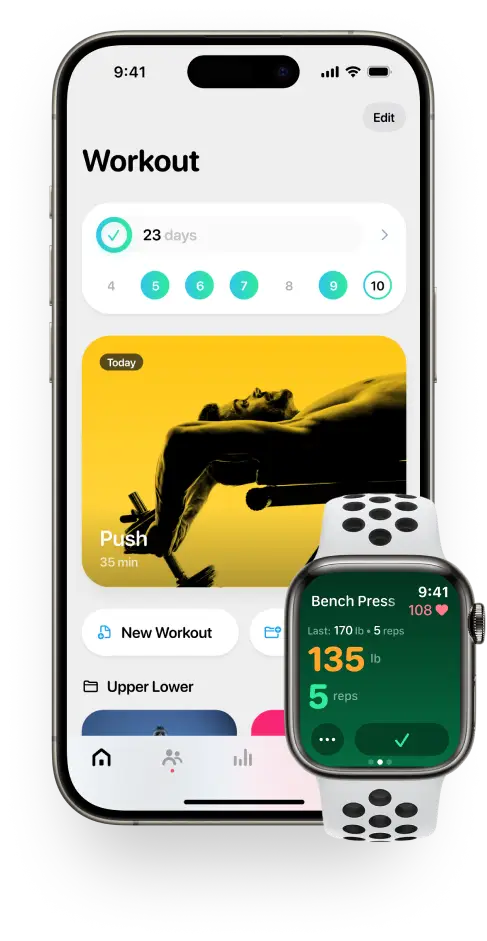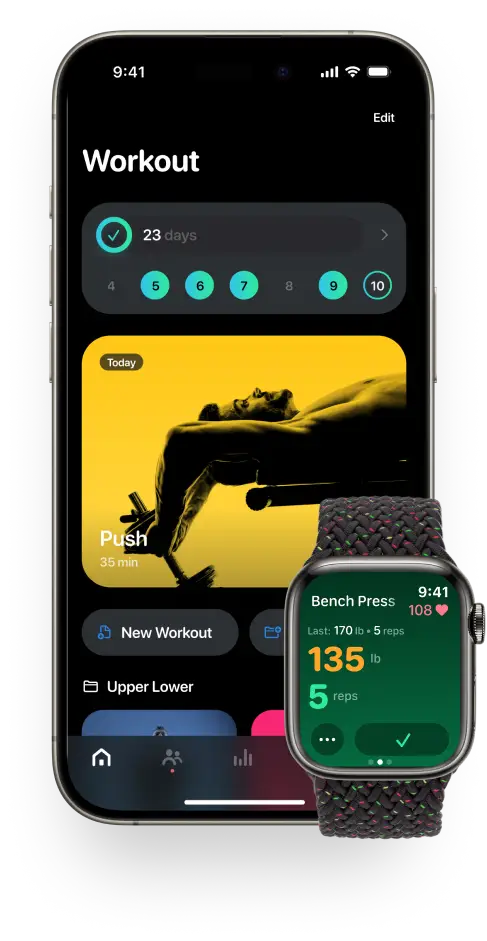Supplement Snapshot: Can Protein Powder Go Bad?
This is a guide to expired protein powder. Get to know whether protein powder can go bad and what health consequences you can experience.
What Does Protein Powder do?
Not eating enough protein? Protein powder is a simple way to up your protein intake if your diet could use some work.
Protein is essential for pretty much any of the processes your body goes through.
Whether you get it through your food or powder, protein helps spur your lean muscle growth, repair your muscles and make sure your hormones work properly.
Here are some key roles protein plays in the body:
Muscle Building
Protein is necessary to build and repair muscle tissue.
A study from the journal Nutrients found that protein helps:
- Build strength and muscle mass when paired with resistance training
- Lets you retain more muscle mass
- Helps with age-related muscle loss
- Potentially keep a more even supply of protein in your body when distributed evenly throughout your meals (although this requires more research).
Athletes, bodybuilders, and people who do frequent exercise usually need more protein than the average person.
Compared to sedentary people, people who work out use protein powder more often to support muscle growth.
Amino Acid Creation
So if we need to eat it or supplement it, how does the body make protein anyway?
Proteins are made up of amino acids. Think of these as the body’s building blocks.
Your body creates many amino acids naturally. But there are some that your body can’t produce on its own. You have to get these through your diet.
Per the National Research Council’s Recommended Daily Allowances, the nine amino acids your body doesn’t produce naturally are:
- Histidine
- Isoleucine
- Leucine
- Lysine
- Methionine
- Phenylalanine
- Threonine
- Tryptophan
- Valine
These are a mouthful. Literally. Because you need to eat them. They help you form other proteins, neurotransmitters and hormones.
If you’re missing something in your diet for these amino acids you need to build protein, commercial protein powders can be a quick fix to get your aminos in.
Adding a protein powder to your diet can help if you’re lacking any of these amino acids.
Weight Management
Protein can help you slim down.
Although inherently a calorie is a calorie and protein is not a cure-all weight loss substance (there are no true shortcuts here), it can make you feel fuller than other types of food.
Clinical trials found that getting in more dietary protein than the recommended amount can make you feel fuller.
What happens when you feel fuller? If you’re taking in a high-protein diet, it can help in reducing your overall calorie intake.
You’re less likely to gorge yourself on sweets and junk food after a protein-rich meal (unless you’re in a dirty bulk, but we don’t judge!).
Adding protein powder to your diet can help you manage your weight if you struggle to feel full and control your calories.
On top of this, it may help you keep on lean muscle mass, even when you’re restricting calories to try to cut after a lean bulk.
Convenience
Protein powder is convenient to boost your protein intake, especially if you’re not hitting your protein goals through just food.
You can easily mix it with water, milk, or other drinks if you’re running to the gym.
You can even try:
- Protein shakes
- Protein smoothies
- Protein pancakes
- Protein overnight oats
- Protein brownies
The possibilities are endless! If you like to stick to simple, a shake will do, but it can be fun to get creative and incorporate your powder into recipes you love for a simple boost.
Protein Timing
Eating your protein powder around the time of exercise (either before or after) is common to support protein synthesis and recovery in your muscles.
We call this nutrient timing or protein timing.
It’s a popular strategy. Some evidence, like this research from the Journal of the International Society of Sports Nutrition, suggests that protein may be more beneficial for muscle building if you eat it in a two-hour window after a workout.
In a revised study from the same journal, researchers Aragon and Schoenfeld questioned their previous research and determined that there’s not enough evidence to say conclusively whether timing makes a difference at this point.
The question is still up in the air.
Low-Protein Diets
Some people may lack protein because of their diets. For vegetarians and vegans, for instance, protein powder can be a useful supplement to ensure an adequate protein intake.
How do you make protein powder?
You can get lots of commercially available protein supplements with animal byproducts, like casein and whey proteins (milk-based). But there are vegetarian and vegan proteins on the market too.
You’ll find these at most sports nutrition or health food stores.
What are the Side Effects of Protein Powder?
Does protein powder come with any nasty downsides?
For most people, protein powder is safe, but any dietary supplement comes with some risk.
In the US, athletic nutrition stores sell protein as a “dietary supplement.” That means it’s not FDA-regulated like food or medication.
Health conditions, allergies, or other factors can affect your reaction to protein powder. These include:
Digestive Problems
Some people get tummy aches when they take protein powder. You may feel bloated, gassy, or constipated.
Yuck.
This could be for several reasons. If you take milk-derived proteins, for example, you may just be lactose intolerant.
Many commercial proteins also have additives that can trigger a not-so-great reaction in your gut. If you feel a stomachache coming on, first, look for signs it’s expired (hint: those are coming up) or try reducing the amount of protein you take.
If it’s every time, try switching to a new brand or seeing a doctor if you think you may have an underlying stomach problem.
Allergies
If you’ve got a milk allergy (in the case of whey or casein protein) or are sensitive to plant-based protein powders, you could get an allergic reaction.
Make sure to check the ingredient list to see if there’s anything your body doesn’t like in your protein.
Kidney Damage
For most people, bumping up your protein intake is a good thing. But if you have kidney problems, too much protein may make them worse.
Talk to your doctor if you’ve had issues with your kidneys and are thinking about protein supplements. They can let you know if there is a certain protein brand or type that is an option for you.
Weight Gain
This may be the opposite of what you’re looking for. If you don't account for the extra calories you take in from protein supplementing within the rest of your diet, you might gain weight.
Make sure you know how much protein you can have based on your total daily calorie goals. Adjust accordingly to scale things up or down when you add protein powder to the mix.
Nutrient Imbalance
If your diet sucks, supplements won’thelp you. Although protein helpt most people, you also need to focus on other macronutrients, like carbs and fats.
Micronutrients, like the ones you get in leafy greens, are important for your body to function well too.
Make sure you’re not neglecting other nutrients while you’re bumping up your protein intake. Focus on getting food variety and try to eat foods with nutrients from several sources.
All these will help you maintain a healthy diet and effective metabolic health. They may even impact your metabolic age.
Contamination
Because they’re not regulated, some protein supplements can be contaminated. Heavy metals, pesticides, and other yucky things you probably don’t want to run into have all been found in some commercially sold protein powders.
Make sure to buy from suppliers you trust! Choosing high-quality brands and checking if they’re third-party tested can help you lessen the risk of buying a contaminated product.
Medications
If you’re on meds, sometimes mixing these with protein is a no-go. If you take medication, especially for kidney or liver problems, talk to your doctor first before adding protein powders to your diet.
Remember, protein should supplement your diet but it’s not a meal replacement. Medication on an empty stomach + protein could spell recipe for disaster. Always make sure you’re taking other mediations as directed by your doctor.
If you experience severe side effects, contact your doctor or a registered dietitian. They’ll help you understand what your body needs and recommend a good diet plan for your health concerns and goals.
How Long Does it Take for Protein Powder to Go Bad?
So to answer the titular question: Yes! Protein powder can go bad.
Most protein powders come with a "best by" or expiry date. You’ll see it on the container. Shelf life can depend on the type of protein powder, what brand you take, and how you store it (or how the retailer stores it).
This expiration date tells you how long the product should stay at its best quality flavor, texture, and nutritional value.
Taking protein powder after it’s expired may not always hurt youl, but we don’t recommend risking it.
Best case scenario, the quality and effectiveness could be compromised. In the worst case scenario, you may get sick.
To make your protein powder last:
Check the Expiration Date
Please read the fine print! Always check the expiration date on the packaging. If it’s past the best before date don’t use it.
Store it Properly
Keep the protein powder in a cool, dry place, away from direct sunlight and moisture. Exposure to heat and humidity can degrade the quality of the powder.
Close the Lid
Seal your container tightly any time you use your protein. You don’t want too much moisture to get in. This makes your product break down or clump.
Avoid Contamination
To measure, use a clean, dry scoop. This stops things you don’t want in there from getting into your protein container.
If you notice any weird changes in color, smell, or texture, or if it gets too clumpy, there’s a good chance it’s degraded.
In this case, it's best not to take it.
Make sure you’re following the recommendations for storage and how to use your powder.
Will I Get Sick from Eating Expired Protein Powder?
We don’t recommend taking any expired supplements. The quality and safety of your product may be compromised over time.
Expiry dates exist for a reason. The risk is not necessarily any higher or lower than eating expired food. Some people like to take risks, others don’t.
But the listed date on the container is there to protect you. Using protein powder after its expiration date can potentially result in issues like:
Spoiling
Expired protein powder can develop an “off” smell, unusual taste, or color and texture changes. This may mean it’s spoiled. Eating any spoiled food can lead to stomach problems like nausea, vomiting, and diarrhea.
Nutrient Degradation
It may not always be dangerous but it could be useless. The nutritional content of your protein powder can degrade over time. In this case, it’s less effective in giving you essential amino acids or other nutrients.
Microbes
Protein powder exposed to moisture, air, or other contamination, can become a breeding ground for bacteria, mold, and other stuff you don’t want to be eating.
These can easily make you sick.
While a small amount of expired protein powder isn’t likely to cause severe illness, we’d say it’s not worth the risk.
Be cautious. If you notice any signs of your protein going off or changes in the product's appearance, smell, or taste, it's best to chuck it.
Big Picture
To increase your gains, protein powder is one of the easiest things you can try. Whether you choose whey protein powder, pea protein, or any other source of protein, supplements can be an effective choice.
They may help you with strength training and muscle recovery. Because of the improved recovery, protein powder may make you feel better during workouts. This can help you lift weights more comfortably, get in more physical activity and maybe even lose weight.
The bottom line is, they can be a great asset to your overall health.
When in doubt, throwing it out is usually the best rule of thumb. This is true for protein powder, creatine, supplements, food, or anything else you put in your body.
Nevertheless, taking expired supplements can have major negative side effects. If you’re concerned about the safety of expired protein powder or you feel sick, talk to your doctor.
Make sure you’re storing your protein powder properly:
- Check the expiry date
- Close the lid
- Use a clean scoop
- Keep it away from contaminants
These steps will keep your protein better for longer.
From expired protein powder, it's unlikely. But If you experience a life threatening allergic reaction from an expired supplement, call 911.
Protein powder is a great effective tool when used correctly. It can help you build a more aesthetic body and help you work toward goals like getting the body of a Greek god or a coveted V-line on your abs.
Some supplements can even be combined. Can you mix protein powder with creatine?
Regardless of your protein goals, it’s important to be safe, no matter which supplements you use. Whether you take protein, creatine monohydrate or micronized, or fat burners, stay safe and check the expiration date.
Remember that supplements don’t mean you can eat poorly. Dial in your diet and kick those workouts up a notch. You may be surprised with some pretty impressive results.
References :
Aragon, A. A., & Schoenfeld, B. J. (2013). Nutrient timing revisited: is there a post-exercise anabolic window?. Journal of the International Society of Sports Nutrition, 10(1), 5. https://doi.org/10.1186/1550-2783-10-5
Bandara, S. B., Towle, K. M., & Monnot, A. D. (2020). A human health risk assessment of heavy metal ingestion among consumers of protein powder supplements. Toxicology reports, 7, 1255–1262. https://doi.org/10.1016/j.toxrep.2020.08.001
Carbone, J. W., & Pasiakos, S. M. (2019). Dietary Protein and Muscle Mass: Translating Science to Application and Health Benefit. Nutrients, 11(5), 1136. https://doi.org/10.3390/nu11051136
Kerksick, C. M., Arent, S., Schoenfeld, B. J., Stout, J. R., Campbell, B., Wilborn, C. D., Taylor, L., Kalman, D., Smith-Ryan, A. E., Kreider, R. B., Willoughby, D., Arciero, P. J., VanDusseldorp, T. A., Ormsbee, M. J., Wildman, R., Greenwood, M., Ziegenfuss, T. N., Aragon, A. A., & Antonio, J. (2017). International society of sports nutrition position stand: nutrient timing. Journal of the International Society of Sports Nutrition, 14, 33. https://doi.org/10.1186/s12970-017-0189-4
Lentine, K., & Wrone, E. M. (2004). New insights into protein intake and progression of renal disease. Current opinion in nephrology and hypertension, 13(3), 333–336. https://doi.org/10.1097/00041552-200405000-00011
Moon, J., & Koh, G. (2020). Clinical Evidence and Mechanisms of High-Protein Diet-Induced Weight Loss. Journal of obesity & metabolic syndrome, 29(3), 166–173. https://doi.org/10.7570/jomes20028
National Research Council (US) Subcommittee on the Tenth Edition of the Recommended Dietary Allowances. Recommended Dietary Allowances: 10th Edition. Washington (DC): National Academies Press (US); 1989. 6, Protein and Amino Acids. Available from: https://www.ncbi.nlm.nih.gov/books/NBK234922/
Schoenfeld, B. J., Aragon, A. A., & Krieger, J. W. (2013). The effect of protein timing on muscle strength and hypertrophy: a meta-analysis. Journal of the International Society of Sports Nutrition, 10(1), 53. https://doi.org/10.1186/1550-2783-10-53
Related articles
Does Creatine Help With Weight Loss
How Is Protein Powder Made? Whey, Casein and Vegan Proteins
Creatine + Protein Powder: Mass Gains or Disaster?


Get fit with Flex
Build muscle & lose weight fast for free.
Available on iPhone + Apple Watch





